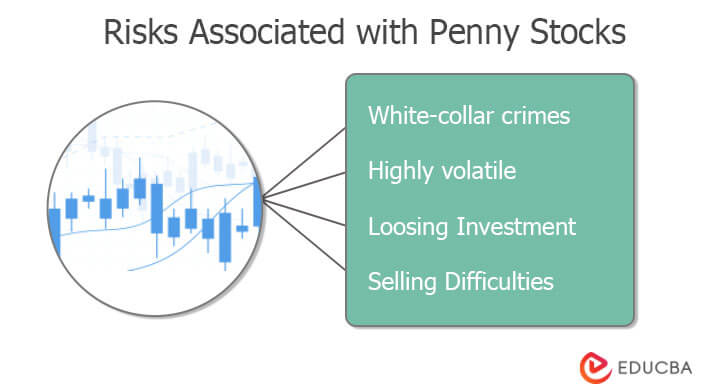Introduction to Penny Stocks
Shares of small public companies that trade at low prices at the beginning, which might subsequently trade at higher prices, are called penny stocks.
The other names are OTC Stocks, micro-cap, Nano-cap, or small-cap stocks. The U.S. Securities Exchange Commission referred to penny stocks as a security issued by a small company that initially trades at less than $5 per share. (Source: Wikipedia). They are usually traded outside the major exchanges and typically over the counter (OTC), called OTC Stocks.
While penny stocks have evolved from trading below $1 per share, the US SEC includes all shares that trade below $5 in this category. Sometimes the cut-off price may be $3. So to avoid all sorts of ambiguity, penny stocks are finally traded on pink sheets or over-the-counter Bulletin Boards (OTCBB). Moreover, stocks valued under $5, actively discussed, recommended, or speculated upon by users on the social media platform Reddit, are commonly referred to as penny stocks reddit.
Example
For example, Booking (NASDAQ: BKNG) (formerly Priceline.com) traded as low as $1.08 per share in 2001. BKNG now trades for about $1,965 per share.
Source Link: feeds.finance.yahoo.com
Link: https://finance.media.yahoo.com/quote/MCIG/
Advantages and Disadvantages
Below are the advantages and disadvantages of penny stock:
Advantages of Penny Stocks
- Though they are highly volatile, penny stocks yield exemplary rewards.
They have the potential to offer high growth in a short span and hence have become one of the popular choices among investors. - Massive profits can earn from small invested capital. As the name itself suggests, they start small. Subsequently, they can make it big.
Disadvantages of Penny Stocks
- Low price in the market leads to low capitalization.
- Lower liquidity makes it difficult for the holders to cash out. When an investor wants to sell the shares, he might not be able to sell them immediately because of the lack of buyers available in the market.
- They are usually thinly traded.
- The lack of history of the company offering the penny stocks makes it difficult for the investor to choose his purchase as such companies would possess a poor track record or no record.
- Artificial inflation of share prices may lead to false statements regarding the company’s situation, also referred to as the “pump and dump” scheme, a form of fraud in microcap stocks, also called a supernova.
When the price is falsely and sufficiently inflated, the people ready to commit fraud will dump the shares and record instant profits. - The lack of information about penny stocks to the public makes it hard to make informed investment decisions. Few people proclaim themselves experts in such matters and ask for lump-sum payments in exchange for knowledge or information about stocks. Investors should be aware and not fall into such traps.
Risks Associated with Penny Stocks
- Fraud risks are high. No minimum standards and compliance requirements make it easier for fraudsters to use penny stocks. Investors must be attentive enough to understand the difference between impudent stock advertising, promotions, etc., and trustworthy equity research.
- Increase in white-collar crimes.
- It comes with high volatility. Though highly rewarded, penny stocks are highly volatile, and hence investors need to be vigilant and keep checking some warning signs as to when to invest/withdraw from the market.
- Investors must be aware that they might lose their entire investment. Because the stocks are highly volatile, it is not possible to accurately predict the stock movements, and sometimes, it may lead to the entire investment amount being lost.
- They infrequently trade, which means investors face difficulties selling them once they decide to sell. Also, there will arise some difficulties in obtaining quotations for penny stocks.
For such reasons, they are considered to be speculative investments.
Other Important Points about Penny Stocks
It can be traded with OTC Bulletin Board, OTC Link LLC (previously known as Pink OTC Markets), securities exchanges, including the foreign securities exchange, etc. It can also include securities of private companies with or without any active trading market.
The broker-dealers of penny stocks must comply with the requirements of Section 15(h) of the Securities Exchange Act, 1934, and the rules thereunder. If they fail to do so, they will be prohibited from effecting any transactions. The rules are as follows:
- The firm shall first obtain the customer’s agreement to the transaction and ensure a written agreement is made.
- The firm must furnish a disclosure document to the customer, revealing the risks associated with investing.
- The current market quotation of the penny stocks should be provided to the customer; and
- The customer must disclose details regarding consideration to the firm and the broker for effecting the transaction. Also, after the sale, the broker-dealer shall send the customer the market values of the stocks in the monthly statements.
Conclusion
As we have learned above, penny stock trades at any value less than $5. They allow investing in small amounts and help to earn big amounts if the right one is found. They are highly volatile in nature, and because of that, there may be cases where the entire investment may be lost. Plus, a lot of scams exist. That means penny stocks are not for everyone. Before deciding to invest in such stocks, one must conduct extensive research.
Recommended Articles
This is a guide to Penny Stocks. Here we discuss the Advantages and Disadvantages, limitations, and important points. You can also go through our other suggested articles to learn more.




